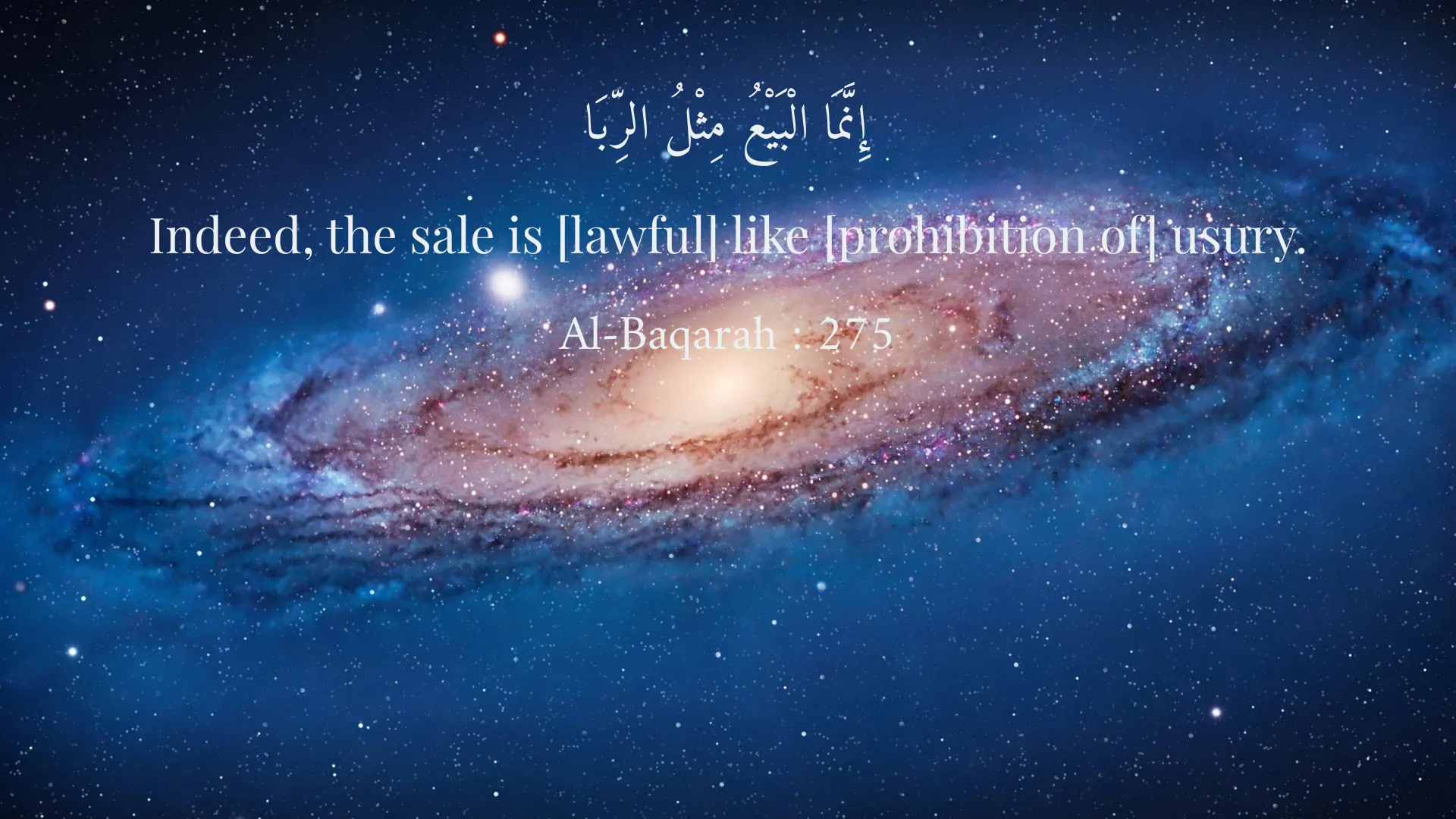Quranic Answer

In the Holy Quran, trade and transactions are presented as significant economic and social activities that play essential roles in human interactions and the functioning of society. The Quran, as a divine guide, emphasizes ethical conduct in business dealings and highlights the importance of justice and fairness. Trade is not merely a transactional activity but is also seen as a means of fostering social relationships and maintaining public trust. Specifically, Surah Al-Baqarah, verse 275, explicates the lawful nature of trade: "Indeed, the sale is [lawful] like [prohibition of] usury." This verse draws a clear demarcation between acceptable and unacceptable forms of economic interaction, advocating for buying and selling as legitimate avenues of economic engagement while denouncing usury, which is viewed as exploitative and unjust. The distinction between lawful trade and prohibited usury underscores a fundamental principle of justice in economic relations. The emphasis placed on trade as legitimate underscores its role as a mechanism for wealth distribution and economic growth, while usury is condemned for its tendency to exacerbate economic inequality and social injustice. The Quran’s advocacy for honesty and truthfulness in transactions indicates that the morality of economic activities cannot be overlooked; rather, ethical considerations must govern all interactions in the marketplace. This creates a framework where trade is not conducted merely for profit but is entwined with moral responsibilities towards one’s fellow human beings. Furthermore, Surah Al-Mutaffifin takes this ethical discourse further by criticizing those who engage in fraudulent practices, stating: "Woe to those who give less [than due]." This admonition serves as a reprimand against dishonest traders who manipulate measures and scales to deceive consumers. This form of cheating not only harms individuals but also undermines the integrity of the entire economic system. The Quran advocates that both parties in a transaction should uphold a principle of fairness, ensuring that every individual receives their rightful due. This promotes a sense of communal responsibility and accountability, highlighting that the actions of one reflect on the broader community. The Quran also recognizes the importance of protecting the rights of others in the realm of trade. In Surah Al-An'am, verse 152, there is an explicit directive: "And do not approach the orphan's property except in a way that is best." This verse invokes a serious ethical obligation to act justly toward vulnerable members of society, such as orphans. By using orphans as an example, the Quran emphasizes that one's conduct in trade should be characterized by compassion and a deep sense of ethical duty to protect the rights of others, ensuring their properties and wealth are treated with utmost respect. This acknowledgment of the rights of others enhances the significance of ethical behavior in business and reinforces the notion that a successful transaction is predicated on respect for personal and communal rights. The principles laid out in these verses illuminate the broader economic and social implications of transactions in Islamic teachings. Ultimately, the Quran advocates for transactions that result in the welfare of society, where the well-being of individuals is prioritized alongside profit-making objectives. Transactions that are executed with fairness, integrity, and social responsibility not only bring about material profit but also contribute to personal and communal stability, nurturing a healthy economy conducive to growth and development. Moreover, the Quran's approach to trade seeks to develop a sense of social solidarity among individuals within the community. When individuals engage in fair trade practices, they foster relationships built on trust and cooperation. This trust becomes fundamental to the functioning of commerce, as it facilitates longer-term partnerships and encourages consumers to support businesses that are perceived as honest and fair. Consequently, a market characterized by trust and ethical behavior can thrive, leading to increased economic activity and ultimately to wider societal benefits. In conclusion, the teachings of the Quran regarding trade and transactions establish a comprehensive ethical framework that emphasizes justice, integrity, and social responsibility. It is not enough for transactions to be economically viable; they must also be conducted in a manner that respects the rights and dignity of all individuals involved. The Quran thus presents trade as a pathway to communal well-being, where the greatest transactions are those that uphold ethical standards and contribute positively to society. In this way, the Quran not only addresses the mechanics of trade but also reinforces the profound social and ethical dimensions that underlie it, cultivating a more harmonious and equitable economic landscape for all.
Related Verses
إِنَّمَا الْبَيْعُ مِثْلُ الرِّبَا
Indeed, the sale is [lawful] like [prohibition of] usury.
Al-Baqarah : 275
وَيْلٌ لِّلْمُطَفِّفِينَ
Woe to those who give less [than due].
Al-Mutaffifin : 1
وَلا تَقْرَبُوا مَالَ اليتيم إِلَّا بِالَّتِي هِيَ أَحْسَنُ
And do not approach the orphan's property except in a way that is best.
Al-An'am : 152
Short Story
One day, a man named Ahmad went to the market. He always tried to uphold fairness in his transactions. One day, when he wanted to buy something, the seller offered a high price. Ahmad remembered the verses of the Quran and decided to talk with him to set a fair price based on honesty and justice. By doing this, he not only made a good transaction but also taught others how to maintain fairness in their dealings.